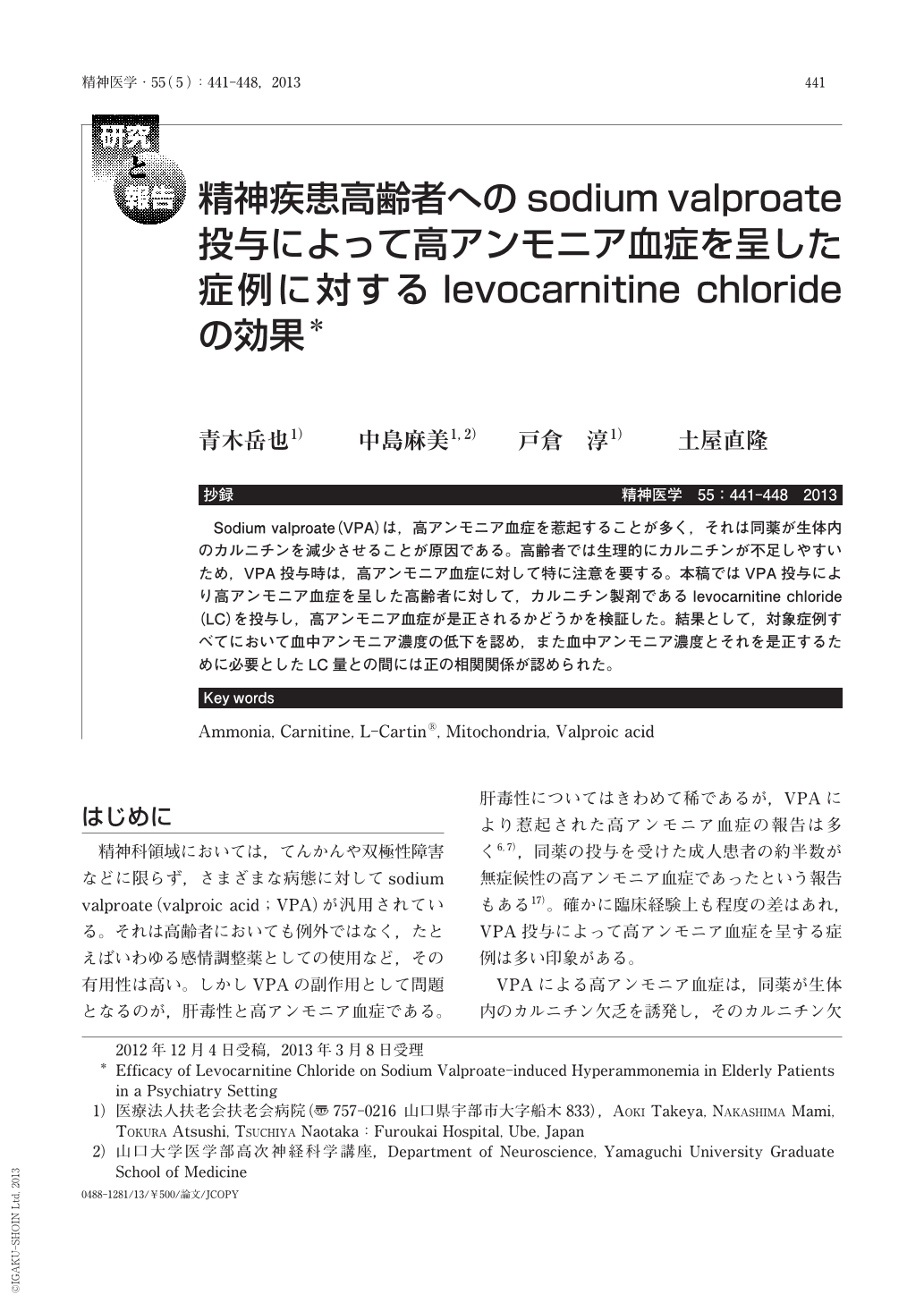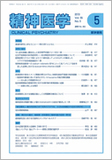Japanese
English
- 有料閲覧
- Abstract 文献概要
- 1ページ目 Look Inside
- 参考文献 Reference
抄録
Sodium valproate(VPA)は,高アンモニア血症を惹起することが多く,それは同薬が生体内のカルニチンを減少させることが原因である。高齢者では生理的にカルニチンが不足しやすいため,VPA投与時は,高アンモニア血症に対して特に注意を要する。本稿ではVPA投与により高アンモニア血症を呈した高齢者に対して,カルニチン製剤であるlevocarnitine chloride(LC)を投与し,高アンモニア血症が是正されるかどうかを検証した。結果として,対象症例すべてにおいて血中アンモニア濃度の低下を認め,また血中アンモニア濃度とそれを是正するために必要としたLC量との間には正の相関関係が認められた。
Sodium valproate is an antiepileptic drug that is prescribed for a variety of conditions. However, it often induces hyperammonemia as one of its adverse events. It has been speculated that the drug decreases carnitine, which is an amino acid in the body, and reduces the function of the urea cycle. Carnitine tends to be deficient in elderly patients because of their decreased muscle mass, physiological function, and diet intake. Therefore, we should pay more attention to hyperammonemia in elderly patients than in young patients during sodium valproate therapy. The aim of this study was to evaluate the efficacy of levocarnitine for hyperammonemia. We examined whether blood ammonia concentrations were corrected when we administered levocarnitine chloride to elderly patients with mental disorders and sodium valproate-induced hyperammonemia. As a result, we observed that blood ammonia concentrations decreased in all patients. In addition, there was a positive correlation between blood ammonia concentrations at baseline and the dose of levocarnitine chloride.

Copyright © 2013, Igaku-Shoin Ltd. All rights reserved.


